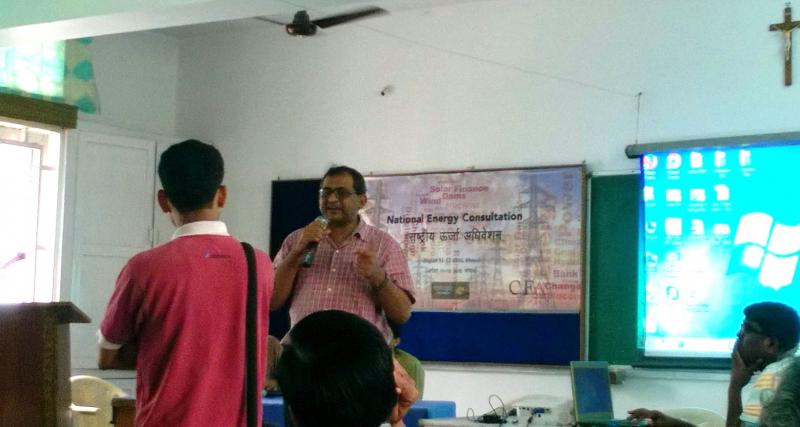Recently, I had attended a meeting on the topic of "Privatization and Commercialisation of water in India" held in Bhopal on August 10th, 2016 organized by the National Alliance for People's movement and saw participation from activists and local as well as national NGOs.
Rajendra Prabhakar, convenor of the People’s Campaign for Right to Water - Karnataka began describing about the water privatization efforts in Belgaum, Gulbarga, Hubli - Dharwad and Mysore. Reforms in state water policy were quickly pushed through in order to meet obligations that were mandated as part of 24x7 water supply improvements project agreements financed by International institutions as early as 2004. His organization had analyzed the effects of privatization on marginalised communities in the state of Karnataka which have shown a negative impact on poorer communities where it has been implemented due to increase in their water bills.
Philippe Cullet traced the history of sectoral reforms in the water sector stemming from the Dublin Principles (1992) through the Swajaldhara scheme (2002) which was rolled out nationally but didn't gain much traction. He also mentioned about the fundamental “Right to Water” derived from the “Right to Life” under Article 21 of the constitution which was reflected in various court judgements; however exercising this right and ensuring implementation by authorities continues to remain a challenge.
Finally, the discussion revolved on the topic of Water ATMs/Kiosks which has been an increasing trend not only in metropolitan cities but also towns across India. Public-Private partnership models and CSR initiatives are being used to deliver Water ATM/Kiosks in public areas as well as underserved communities. The long term sustainability of this type of model was debated on the grounds of governance, technology and social impacts.
While the water issues may vary from state to state, the attendees collectively recognized that ensuring the “Right to Water” principle is important in all states and privatization of water services being rolled out across the country in its present form may not be beneficial to the public at large. The background note for this meeting is available here.

The one day meeting was followed by a two day consultation on the Energy/Electricity situation and trends in India.
Add new comment